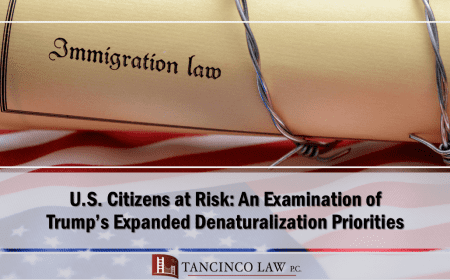On November 8, 2018, the Ninth Circuit Court of Appeals ruled that the rescission of the DACA program by the Trump Administration is arbitrary and capricious. What does this ruling mean to DACA applicants?
The Deferred Action on Childhood Arrivals, commonly referred as DACA, begun in 2012 allowing non-citizens who entered the United States as children, who have clean criminal records, and who meet certain eligibility requirements – to apply for two-year renewable periods of deferred action. Deferred action is a revocable decision by the government not to deport an otherwise removable person from the country. Those granted deferred action are issued an employment authorization document for limited periods of time.
Josh is a Filipino DACA recipient. He entered the United States when he was only 9 years old as a visitor visa holder. His parents are still without legal status but Josh was able to get DACA protection in 2016. He is now gainfully employed in a financial institution and has been a good citizen. When he was about to renew his DACA employment authorization, Joshua was told that he only has a small window to benefit from the DACA program as a result of the Trump Administration’s announcement in September 2017, that the DACA program is to be terminated in phases.
Lawsuits were filed in Northern District of California after the Trump announcement of the DACA rescission in September 2017; in January 2018, the District Court ruled that the DACA rescission was unlawful. Hence, a resulting nationwide preliminary injunction was issued to hold off Trump’s plan to phase out the DACA program.
The Trump administration continued to argue for the validity of the DACA termination arguing its case with the Court of Appeals. The primary bases of the government in stating that the DACA program is illegal was that DACA was “effectuated without proper statutory authority and is unconstitutional.” Without waiting for a decision from the Court Appeals the government filed in November 5, 2018 a petition for writ of certiorari before the U.S. Supreme Court arguing on the legality of the DACA rescission.
On November 8, 2018, three days after filing the petition before the Supreme Court, the Ninth Court of Appeals ruled that the DACA rescission was unlawful, arbitrary and capricious. It also affirms the District Court’s issuance of a preliminary injunction and thus holding off to the termination of the DACA program.
As a result of the affirmation of the preliminary injunction, the U.S. Citizenship and Immigration Services (USCIS) will continue to receive and adjudicate renewal of DACA applications with the following exceptions:
- That new applications from applicants who have never before received deferred action need not be processed;
- That the advance parole feature need not be continued for the time being for anyone; and
- That DHS may take administrative steps to make sure fair discretion is exercised on an individualized basis for each renewal application.
Hence, in the case of Josh above, and based on recent developments on DACA, he can still be permitted to renew his DACA protection and seek renewal of his employment authorization document.
The fate of the DACA program is now with the U.S. Supreme Court. With the current structure of the court and the recent appointment of Justice Brett Kavanaugh, several of us immigration advocates are quite apprehensive about the future of the DACA program. Meanwhile, considering that it has not ended, DACA recipients must continue to avail of its benefit.
In concluding the panel’s recent decision, Justice Wardlaw of the Ninth Circuit Court of Appeals emphasized how important it is for the government to be “democratically accountable” to the public in the exercise of its discretion in the enforcement of immigration law. It stated in part, “whether Dulce Garcia and the hundreds of thousands of other young dreamers like her may continue to live productively in the only country they have ever known is, ultimately, a choice for the political branches of our constitutional government. With the power to make that choice, however, must come accountability for the consequences.”
(Atty. Lourdes Santos Tancinco, Esq. is a San Francisco based immigration attorney and an immigrant rights advocate. She may be reached at 1 888 930 0808, law@tancinco.com, or through facebook.com/tancincolaw.)




